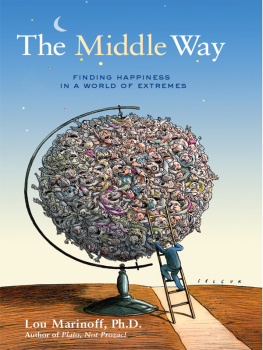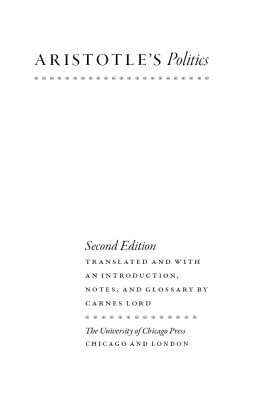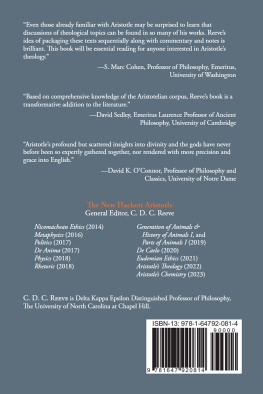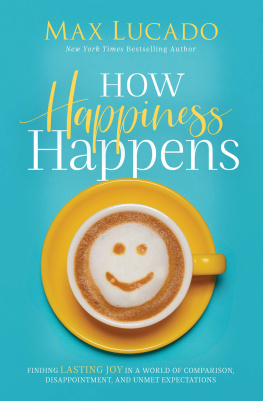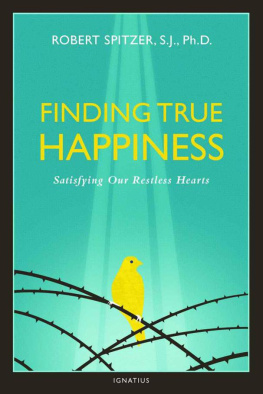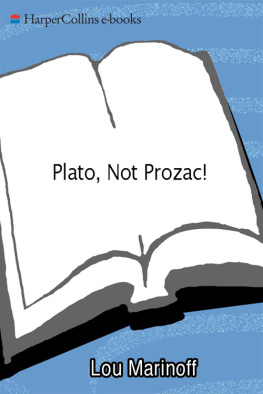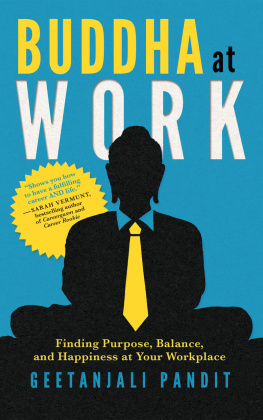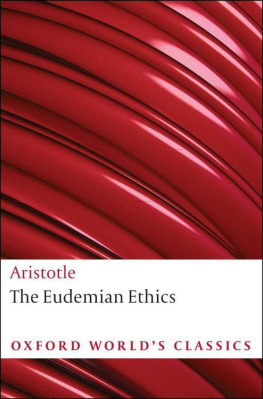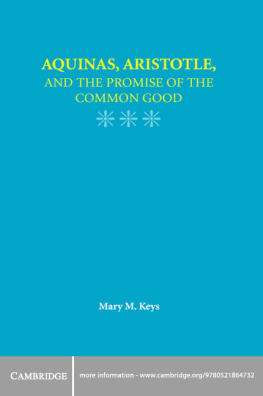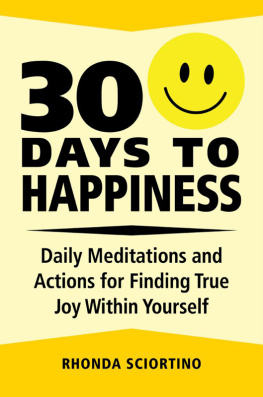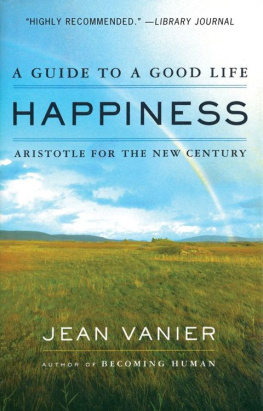THE
MIDDLE
WAY
Finding Happiness in a World of Extremes
LOU MARINOFF, PH.D.

STERLING and the distinctive Sterling logo are registered trademarks of Sterling Publishing Co., Inc.
Library of Congress Cataloging-in-Publication Data Available
2 4 6 8 10 9 7 5 3 1
Published by Sterling Publishing Co., Inc. 387 Park Avenue South, New York, NY 10016 2007 by Lou Marinoff
Sterling ISBN-13: 978-1-4549-0440-3
For information about custom editions, special sales, premium and corporate purchases, please contact Sterling Special Sales
Department at 800-805-5489 or specialsales@sterlingpub.com.
This book grew out of an essay I wrote during 2003 for Global Agenda, the annual magazine of the World Economic Forum. The essay applies the philosophies of Aristotle, Buddha, and Confucius (the ABCs) to the art of modern leadership. I thank Nick Evans for inviting and editing it, and thank Professor Klaus Schwab for inspiring it. The book was further shaped during a dinner in Manhattan, in June 2003. I thank my companions at that dinnerJoelle Delbourgo, Santiago del Rey, and Julian Marinofffor their impetus and encouragement.
The ABCs stand for Aristotle, Buddha, and Confuciusthree of the greatest teachers humanity has ever known. In the process of writing this book, I have drawn not only on their timeless teachings, but also on lessons learned directly from some of their worthy successors. So I offer thanks to esteemed teachers and mentors from Aristotelian, Buddhist, and Confucian traditions alike, including Professor David Bohm; President Daisaku Ikeda; Roshi Robert Kennedy, S.J.; Grandmaster S. M. Li; Professor Elaine Newman; Sogyal Rinpoche; and Professor Klaus Schwab. I also thank friends and colleagues who were kind enough to read the manuscript and offer their valuable advice: Moshe Denburg, Pierre Grimes, and Michael Grosso. In addition, I thank many other friends and colleagues whose willingness to engage me in dialogue improved my understanding of the issues treated herein: Dr. Ibrahim Abouleish, Professor Dominique Belpomme, Dr. Virginia Bonito, Salvatore Geraci, Ida Jongsma, Dr. Yoichi Kawada, Dr. Patti Knoblauch, Elisa Manzini, Dr. Pamela Mar, William OChee, Professor Per Pinstrup-Andersen, Denise Railla, Dr. Frank-Jrgen Richter, Dr. Peter Ritter, Paul Robertson, Guy Spier, Dr. Tan Chin Nam, Matt Taylor, Sundeep Waslekar, Dr. Albert Werckmann, and Masao Yokota, among others.
I thank Stephanie Land for her wonderful work as an editor, Daniel Corts Coronas for his astute copyedits, and Patty Gift and the team at Sterling for their invaluable final editions.
I also thank many hospitable organizations and helpful people within them, who kindly invited my collaboration and afforded me memorable journeys during the research and writing of this book. They include the Association of Commonwealth Universities and the British Council (UK), De Arbeiderspers (the Netherlands), the Aspen Institute, the Institute for Local Government, and the Omega Institute (USA), Center for Leadership and the Arts (Denmark), Commonwealth Publishing Group (Taiwan), Eco-Festival Bourbon-lArchambault (France), Ediciones B (Argentina, Chile, Mexico, Spain, Uruguay), ETOR (Spain), Federal Agency for Civic Education (Germany), Keter (Israel), Nuevos Pasos (Argentina), Paideia (Italy), Record (Brazil), SEKEM (Egypt), Soka Gakkai International (Canada, Japan, USA), and the World Economic Forum (China, India, Singapore, Switzerland, USA).
I would like to express particular thanks to President Daisaku Ikeda, of Soka Gakkai International (SGI), for his inspiration, encouragement, and contributions to this book. He is a remarkable teacher, leader, and exemplar of the Mahayana Buddhist tradition. I have either quoted him directly, or referred to his works, throughout these pages.
The ABCs have much to offer, as do their worthy successors. The Middle Way has never been more vital to humanitys well-being than in todays global village. So despite Ecclesiastes injunction To the making of many books, there is no end, duty and dharma compel me to share with you some salient ideas from The Middle Way. I assume sole responsibility for errors or misunderstandings.
Lou Marinoff
The Global Village, 2006
Note: The Web pages cited below were extant when the citations were originally made. The author and publisher cannot be responsible for Web pages that have subsequently been discontinued or moved to other URLs.
You probably realize by now that all of humanity inhabits a place called the global village, a term coined by Marshall McLuhan during the 1960s. Its a planetary community of billions of people, not all of whom are at peace with themselves or one another on a given day. The growth and evolution of this village is ongoing and apparently unstoppable, but its inhabitants experience many kinds of growing pains, both acute and chronic. This books first premise is that much human suffering is causedor worsened, or prevented from being alleviatedby extremisms of various types, ranging (for example) from religious fanaticism to moral anarchy, from functional illiteracy to deconstructed higher education, from male chauvinism to militant feminism. The second premise is that three great sages of antiquitynamely Aristotle, Buddha, and Confucius, to whom I refer collectively as the ABCseach taught ways to eliminate needless suffering, to guide human beings toward personal fulfillment, beneficial insight, and social balance. Each of them recognized that extremism is anathema to happiness, health, and harmony: yours, and everyone elses.
The ABCs share something else as well: the supremely important notion that the main purpose of being alive is to lead a good life, here and now. Their varying theories and practices are meant to produce goodness in this moment, and the next, and the next... amounting to lasting goodness for you and for others. The ABCs are not concerned with past lives or future ones. They address the heavens and hells we make here on this earth, in every instant. The ABCs teach that by properly exercising the considerable power you hold over this moment in your life, you will make good things manifest for yourself and others. Inversely, they all warn that by carelessly squandering this power, you will make bad things manifest. So you decide: If you prefer fairy tales with happily ever after endings, put down this book and pick up Mother Goose. If you prefer to lead a good life now, continue reading.
The book has three parts. Part I looks at civilizational dynamics that drive both cooperation and conflict in the global village, and introduces each of the ABCs themselves. explores the sacred geometry of the ABCs, showing how their symbols reflect their respective philosophies of morality, society, and politics. The chapter also reveals and illustrates surprising geometric links that suggest the ABCs are related by cosmic laws.
Part II looks at some notorious extremes, and explains how the ABCs can help reconcile them, via The Middle Way. Every one of us veers toward some extreme or other at times, and so you may encounter yourself somewhere in this book, indulging in an extreme you possibly mistook for a norm. The Middle Way is for you too, not just for the extremists who live next door, or in the nearby town, or in the neighboring country. looks at terrorism, asking What is it? and What can we do? and Wheres The Middle Way?
Part III focuses on what you can do to apply the ABCs to the betterment of your life and the human estate. We are all nodes in a global network, and so each one of us can exert a palpable influence by applying the ABCs to reconcile extremes we encounter on a daily basis, starting on those within ourselves..
Next page
